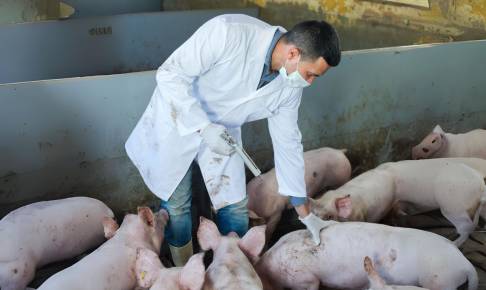Spain: multidrug-resistant E. coli found in 40% of meat products
A group of researchers from the University of Santiago de Compostela-Lugo, Lugo, Spain, together with colleagues from other research centers, discovered multidrug-resistant E. coli in 40% of meat samples analyzed. The findings have been presented during the European Congress of Clinical Microbiology & Infectious Diseases (ECCMID 2023), which takes place in Copenhagen these days (15-18 April).
The authors of the study designed a series of experiments to assess the levels of multidrug-resistant and extraintestinal pathogenic Enterobacteriaceae (Klebsiella pneumoniae, E. coli and other bacteria that can cause multidrug-resistant infections such as sepsis or urinary tract infections) in different types of meat collected at random from supermarkets in Oviedo, Spain, in 2020.
The researchers analyzed 100 meat products comprised of chicken, turkey, beef, and pork (25 samples each). The majority (73%) of the samples contained levels of E. coli that were within food safety limits. However, almost half contained multidrug-resistant and/or potentially pathogenic E. coli. The percentage of positive samples for E. coli per meat type was 68% turkey, 56% chicken, 16% beef and 12% pork. According to the researchers, higher presence in poultry compared to other types of meat is “likely due to differences in production and slaughter”.
The World Health Organization (WHO) has classified antibiotic resistance as one of humanity’s most significant public health threats, a so-called silent pandemic. Multidrug-resistant bacteria can spread from animals to humans through the food chain. It has been estimated that drug-resistant infections kill 700 000 people a year globally and the figure is projected to rise to 10 million by 2050 if no action is taken, according to the WHO. Still, due to commercial sensitivities, data on levels of antibiotic-resistant bugs in food is not made widely available.
“Farm-to-fork interventions must be a priority to protect the consumer. For example, implementation of surveillance lab methods to allow further study of high-risk bacteria (in farm animals and meat) and their evolution due to the latest EU restriction programmes on antibiotic use in veterinary medicine”, said Dr Azucena Mora Gutierrez (University of Santiago de Compostela-Lugo), one of the lead authors. “Strategies at farm level, such as vaccines, to reduce the presence of specific multidrug-resistant and pathogenic bacteria in food-producing animals, which would reduce the meat carriage and consumer risk”, she added.
Following the study, the researchers have called for regular assessment levels of antibiotic-resistant bacteria in meat products.
Source:
https://drive.google.com/file/d/1CW1Fh_d66piDDxpaQk4Tr5kYL0EMot2U/view






















